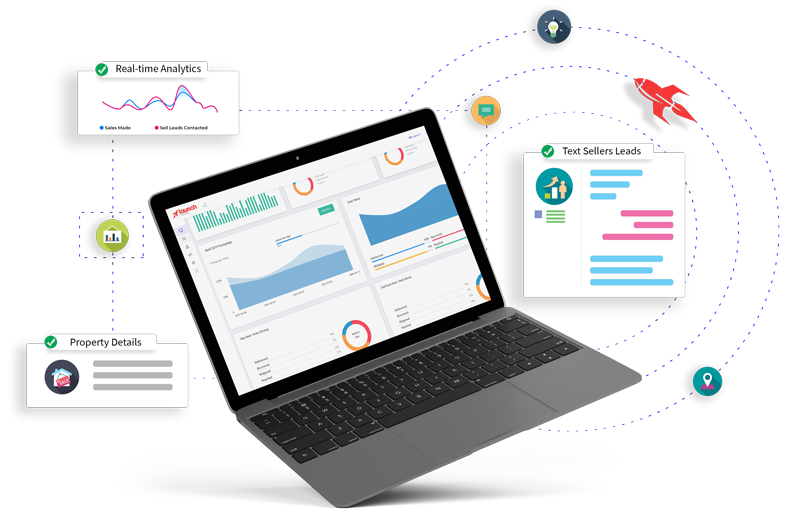Do you want your e-commerce brand to not just be one of many options, but to become a customer’s favorite choice? The solution lies in advanced personalization supported by artificial intelligence. However, we’re not just talking about simple product recommendations or personalized emails. We’re talking about full AI integration, which will learn your customer by learning their habits and providing a unique experience at every stage of the buying process.
Personalization of e-commerce – table of contents:
Personalization in the age of AI
The tools to communicate with customers based on AI make it possible to create deeply personalized messages, most importantly:
- Design a product offering tailored to the needs of the individual customer,
- Match the displayed content to a person’s profile,
- Analyze the preferred channels of communication with the customer and adjust the ways of campaigning accordingly.
But what does personalization look like in each of these areas and what capabilities does the AI have to communicate with e-commerce customers?
Personalization of product offerings
A product offering tailored to the customer’s needs and hitting the perfect moment? Tools using artificial intelligence set just such goals. Thanks to them, it is possible to create:
- Personalized product recommendations – AI can analyze users’ purchase history and behavior on the site to suggest products that may interest them.
- Dynamic pricing – AI can analyze market factors in real time to adjust product prices according to the market situation and customer profile.
Personalization of content in customer communication
The second area of personalization is related to the type of content displayed to the customer upon entering an e-commerce site, in individual emails, or even when creating personalized email campaigns:
- Personalizing content on the site – AI can analyze users’ behavior on the site to tailor content to their preferences,
- Personalization of e-mail marketing – customer data enables you to generate messages in which the text, image, and format are tailored to the device,
- Create personalized campaigns – AI will help you decide or automatically select who to send messages to, what content to include or which channel to go for to communicate with the customer best.
Personalization of e-commerce customer communication channels
The most important personalization channel for e-commerce is the store’s website, where it is possible not only to display dedicated ads related to the customer’s previous purchases but also product recommendations and dynamic pricing. When we add a chatbot or virtual assistant that recognizes the customer and continues the interrupted conversation, the customer experience will be unique for each person visiting our store’s website.
3 e-commerce personalization tools
How to begin with AI in devising personalized communication with your e-commerce customer? The following tools are worth trying out:
- Clerk.io (https://www.clerk.io/) – equipped with ClerkCore™ technology, this app can personalize customer communications, product recommendations, and create personalized offers. ClerkCore™ applies a knowledge graph-based algorithm that analyzes users’ behaviors and interests and then delivers personalized product recommendations based on their preferences. It can be used to personalize content across multiple channels, such as email, website and mobile apps.
- OneSpot (https://onespot.pro/) – is a platform that combines marketing automation, generating personalized content and product recommendations for e-commerce, monitoring customer feedback and sentiment analysis, optimizing campaign performance and tracking progress with A/B testing, analytics and reporting.
- SalesManago (https://www.salesmanago.pl/) – this powerful tool uses artificial intelligence to create personalized e-commerce product recommendations. The tool offers:
- customer feedback monitoring, sentiment analysis and reporting,
- generating e-mails, SMS messages, or content displayed on a website,
- automatically send dynamic messages to customers, reminding them of products they want to buy or might be interested in.

Source: Clerk.io (https://www.clerk.io/)

Source: OneSpot (https://onespot.pro/)
SalesManago’s most interesting artificial intelligence-based modules are AI Studio and Deep Behavioral Profiling. AI Studio is a content generator based on solutions from OpenAI, makers of ChatGPT. AI Studio allows you to create personalized content such as email subject lines, product descriptions and slogans that are tailored to customer behavior and preferences.
The Deep Behavioural Profiling module allows tracking the user’s interaction with the site and creating features of the products viewed by the customer based on this.

Source: SalesManago (https://www.salesmanago.pl/info/deep-behavioural-profiling.htm)
Summary
AI is changing the rules of the game in the field of personalizing customer communication in e-commerce. Its role is not only limited to customized recommendations or dynamic pricing but also to full personalization of content and communication channels. With tools such as Clerk.io, OneSpot and SalesManago, you can significantly improve the effectiveness of your communications and sales.
What will happen in the future to the personalization of customer communications? Let’s indulge in a bit of sci-fi forecasting. Imagine that advanced AI algorithms can predict changes in consumer behavior before they occur. This opens the door to so-called “preemptive personalization,” the ability to design offers not only to what the customer wants now but also to what they will like in the future. In this vision of the future of personalization, responding to customer needs will become as important as anticipating them.

If you like our content, join our busy bees community on Facebook, Twitter, LinkedIn, Instagram, YouTube, Pinterest, TikTok.
Author: Robert Whitney
JavaScript expert and instructor who coaches IT departments. His main goal is to up-level team productivity by teaching others how to effectively cooperate while coding.
AI in e-commerce:
- E-commerce automation. 5 areas of e-commerce worth automating using artificial intelligence
- Marketing texts for e-commerce with the help of artificial intelligence. 5 best tools
- Advertising graphic design with AI
- Customer feedback management with AI. Can Artificial intelligence take care of your online store's reputation?
- The AI revolution in e-commerce
- Personalization of e-commerce customer communication in the new era of AI
- Chatbot vs voicebot - which one to choose for e-commerce?
- AI keys to increase sales in e-commerce
- Optimizing e-commerce pricing strategy with artificial intelligence
- E-commerce pricing management. 4 best AI tools
- The future of e-commerce. What business opportunities are opening up for shopping in the metaverse?


















